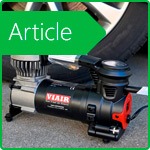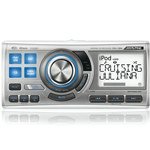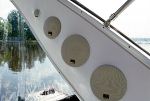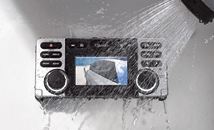How to Design a Marine Audio System
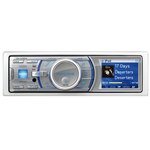 A marine audio system is a stereo system specifically designed for a boat. Standard car and home audio systems are not appropriate for aquatic conditions. Therefore, any audio system that is to be installed in marine vehicles should include protection from the elements. Follow these guidelines to design a marine audio system.
A marine audio system is a stereo system specifically designed for a boat. Standard car and home audio systems are not appropriate for aquatic conditions. Therefore, any audio system that is to be installed in marine vehicles should include protection from the elements. Follow these guidelines to design a marine audio system.
Choose a stereo. Marine stereos have electronic parts that are coated to protect them from water, salt and the sun's UV rays. Consider the following when choosing a stereo for your marine audio system.
Size. Most boats come with standard, in-dash stereo installation. The size of your dash cut-out will limit the type of stereo you can get.
Installation. You may opt to mount your stereo, as opposed to installing it in the dash. Mounted stereos come with enclosures to protect them from the elements, and can be mounted in a location of your choice.
Power output. If you want your boat sound system to produce high volume and rich sound, you will need to include an amplifier in your system. Amplifiers have separate channels to connect each speaker, and come in a range of power output levels. The more power, the clearer and louder the sound. Large boats requiring more than 4 speakers may need more than 1 amplifier.
Decide which features you would like to customize your boat stereo system with. Remember that upgraded features will cost you more, and that you have many to choose from.
Water proofing. All marine audio systems are weatherproof, meaning the electronic parts are poly coated and UV protected. However, not all systems are waterproof. If you feel that your stereo might be splashed with water on a regular basis, opt for a waterproof faceplate with a sealed gasket.
Remote control. You may choose between a wireless or wired remote. Also consider the line of sight necessary for the remote control to communicate with the receptor. You may need additional receptors that can be installed in a different location than the stereo itself.
Auxiliary inputs. You need these for any devices you may want to plug into your boat stereo system. Devices that are compatible with auxiliary inputs include mp3 players, DVD players and satellite radio.
iPod or CD changer controls. If you want to be able to control either of these devices by way of your stereo face, it will need to include specific controls.
Satellite radio. Some marine stereo systems include satellite radio receptors but, in many cases, you will have to buy a separate satellite radio system that is compatible with your stereo.
Determine the type of speakers you want for your marine audio system. 4 speakers is standard for most small to mid-sized boats. However, you may choose to install more speakers if you have a large boat, or if you desire very loud sound. Take the following aspects into consideration when choosing speakers.
Size. If you are upgrading existing boat speakers, then the speakers you purchase should fit into the pre-cut speaker holes on your boat. Otherwise, you may choose to cut larger holes for larger speakers. Remember to account for not only the size of the cutout, but also the depth of the speaker.
Installation. You may choose to install new speakers in existing speaker holes, or mount box speakers. Box speakers come in enclosures to protect them from the elements and can be mounted anywhere you desire.
Speaker quality. You have several choices when it comes to speaker quality, depending on the sound you want for your boat sound system. Dual cone speakers deliver a limited range of sound frequencies and are, therefore, relatively inexpensive.
Coaxial speakers are 1 step up from dual cone speakers, providing limited low to high range frequencies at a mid-level price point. Component speakers use separate speakers (in 1 speaker box) to handle each frequency, and produce high-quality sound. Subwoofers handle only bass frequencies and are only necessary if you desire a big bass sound.
Power handling. In order to avoid damaging your speakers, choose only speakers with a higher power handling capacity than the amplifier you will be using.
Once you get a marine audio system installed, how long should you expect it to last?
The longevity of your system depends on many factors, however generally you should expect a quality marine audio system to last for the life of the boat, in other words many years. Like anything, however, it also depends on how you treat your equipment, how often it is exposed directly to the elements, etc. Another factor is the quality of the installation. Shoddy work will result in a system having problems prematurely. Careless technicians who take shortcuts are often the cause of an early death for a sound system or repeat repairs, be it bad/faulty wiring, loose connections or seals, or any other blunder. The most important factor besides the equipment itself — Make sure your marine audio system is installed by industry professionals who have a reputation for great work, don't try to save a buck and have your friend's cousin's nephew do the job. That being said, shop around first to find out what businesses are charging, do a little research on them (internet research is an invaluable tool).
Materials on the topic

Stay tuned for updates!
Subscribe to our Telegram channel and be the first to receive useful materials.
Subscribe

















